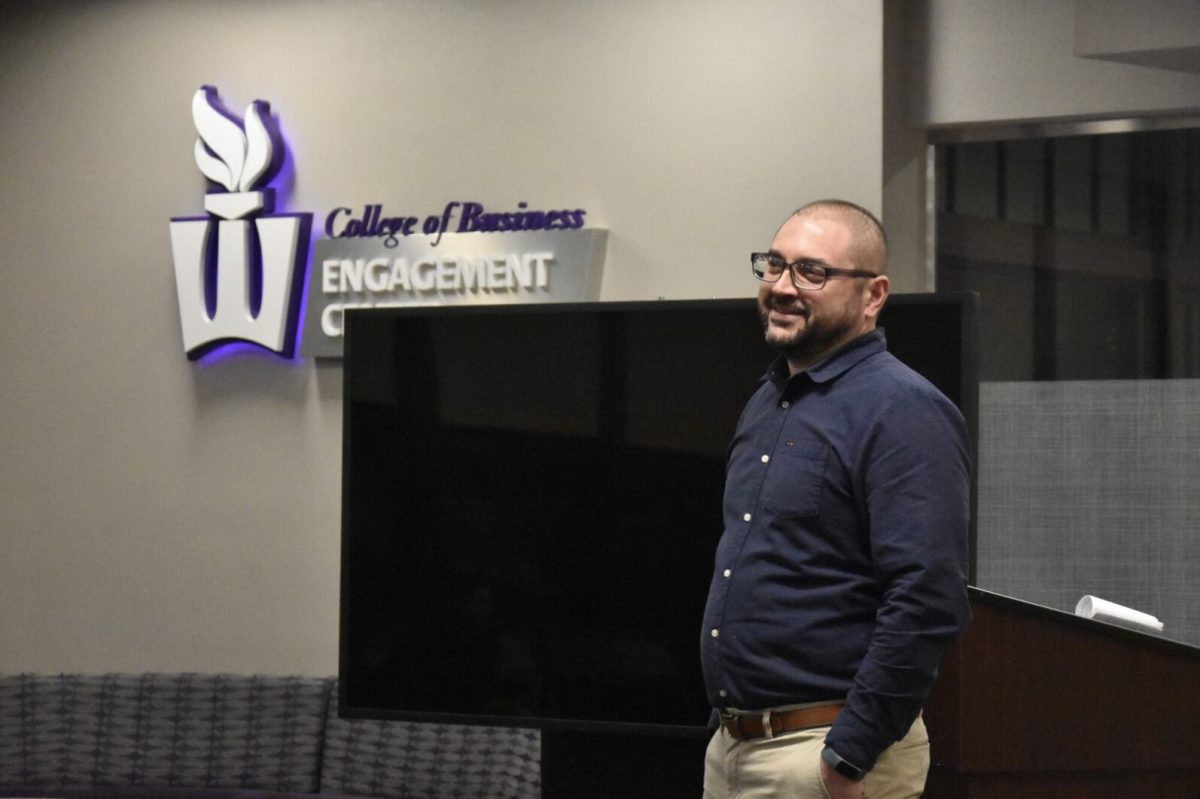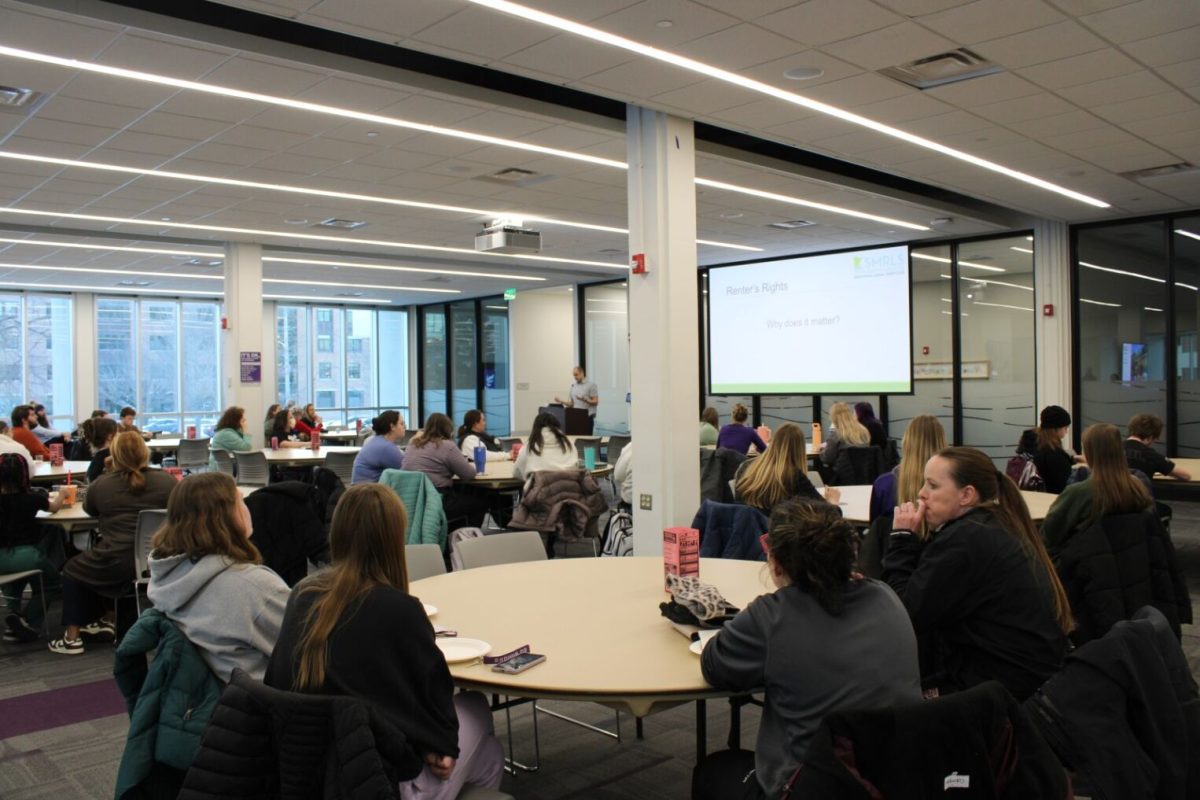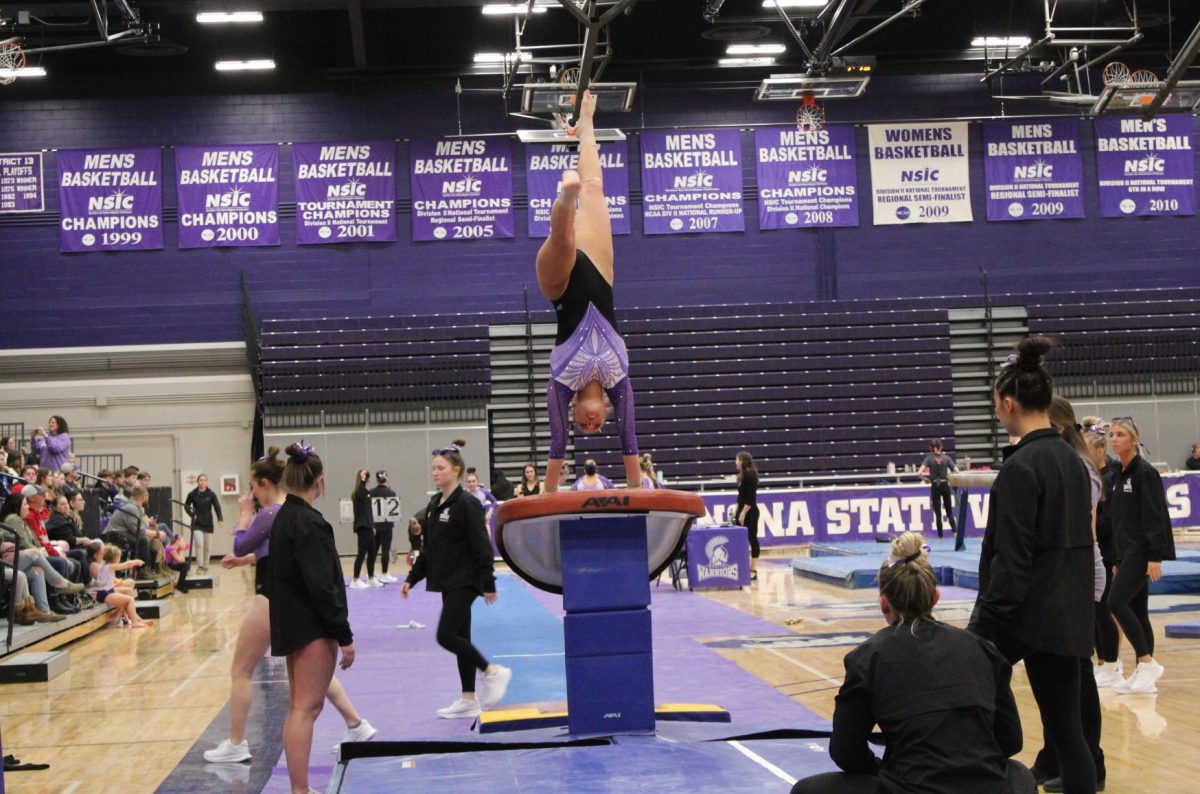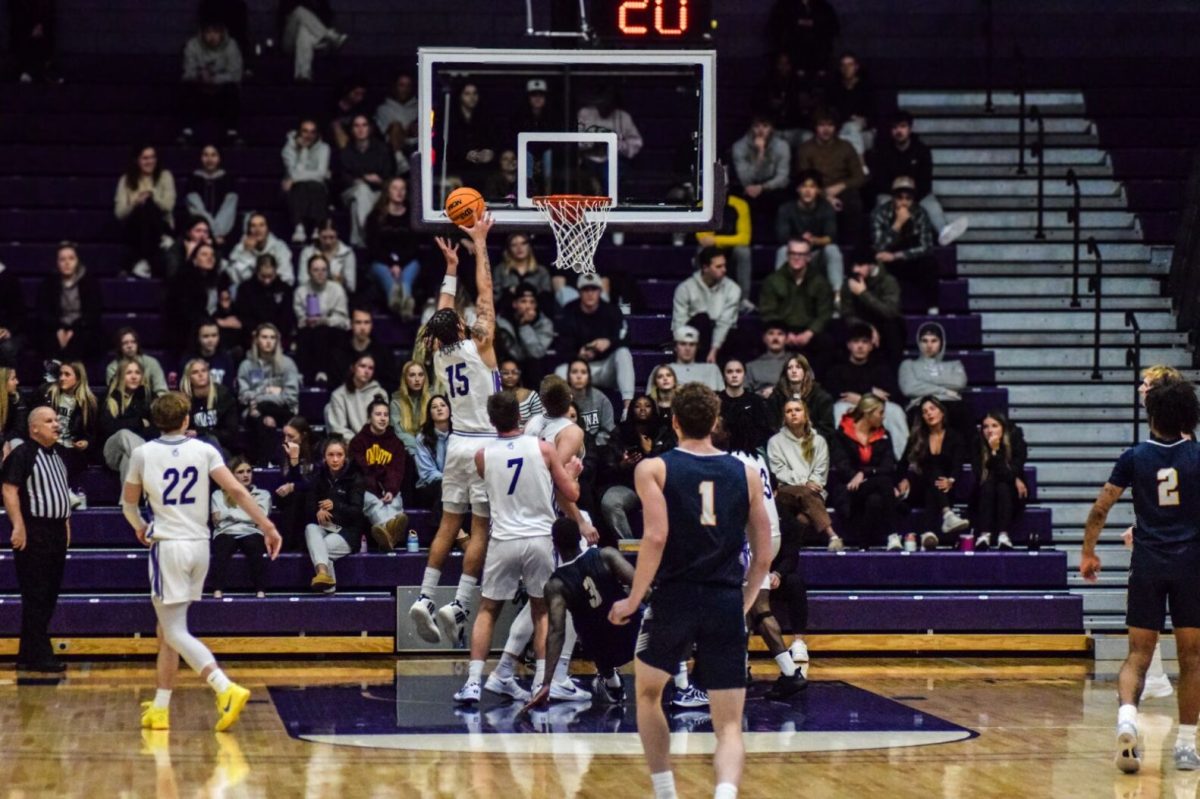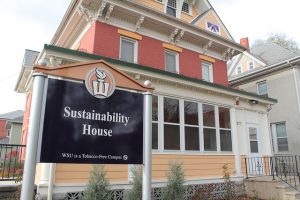
SARAH PICKAR
Rebecca Mueller/Winonan
When students think of university housing, they probably imagine traditional residence halls. For the residents living in Winona State University’s Sustainability House though, university housing includes an active living and learning community.
After being purchased in 2009 and renovated, the Sustainability House was opened as a university housing option in fall 2012 and now in its second year of operation.
Winona State is the only public school in Minnesota to offer a theme house, in this case with the theme of sustainability. The residents take inspiration from Luther College’s sustainability house, which has been around since the fall of 2010.
Up to 11 students can live in the house, including the Community Assistant. Most of the rooms are single-capacity except for one double-capacity room.
Jonathan Hetzel, the hall director for the Sustainability House and East Lake Apartments, said, “The learning experience is day-to-day, stretching yourself to be more sustainable.”
New this year is a one-credit sustainability seminar for Sustainability House residents. The course, called Education Leadership 201, is taught by Bruno Borsari and meets from 5 to 6 p.m. on Thursday evenings.
The course has included trips to visit the co-op, Borsari’s beehives, Garvin Heights and the Krueger Woods. The class also traveled to Brownsville, Minn. to view the annual tundra swan migration.
The course trips emphasize why living sustainably is important.
Jinniece Kalal, a junior who lives in the Sustainability House, said, “You actually get to connect with nature and see what you’re affecting.”
In addition to the course, the residents take part in weekly Living Bravely challenges such as eating vegetarian for a week, shortening showers and eating locally. These challenges help the residents explore new ways to live sustainably.
Tom Gorycki is the current Community Assistant for the Sustainability House and is passionate about living sustainably.
“He kind of infects us with his enthusiasm,” Kalal said.
One of Gorycki’s projects for the residents this semester is making soaps. He and the residents have made laundry soaps, hand soaps and dish soaps.
The homemade soaps not only use fewer ingredients than are in store-bought soaps, but are more cost-effective. Gorycki estimates that he can make three gallons of laundry soap for around a dollar.
“I think that’s changed my opinion about the stuff I buy,” Kalal said.
The residents try as much as possible to work with various groups around campus, such as students in Volans House in Lourdes Hall, a green living interest community, and the Environmental Club.
Gorycki said, “I’ve been trying to bridge those connections.” He looks for opportunities where the Sustainability House residents can team up with these groups on projects that reflect their shared interests.
The residents are planning to redo the landscaping at the Sustainability House this spring. The new landscape would take the form of a rain garden that incorporates native plants. It would feature signs similar to those already in place in the Main Campus arboretum.
Hetzel sees the rain garden as an extension of the campus arboretum.
“In my mind, this is another component of that,” he said.
The rain garden project is part of a competition through the Environmental Protection Agency. Colleges are invited to design and submit plans for rain gardens on campus.
Because the residents are still in the early stages of creating designs, no official plans exist yet. They hope to create a proposal regardless of whether it is submitted for the competition.
“The students still want to bring that proposal to the administration,” Hetzel said. Any landscaping plans would have to be approved by Facilities and the Housing and Residence Life department.
The residents have other plans in the works as well. One upcoming project includes a fair trade coffeehouse, where students will be able to taste different fair trade coffees and teas while becoming aware of various companies’ business practices.
Gorycki is building up a rubric to leave behind for future Community Assistants so that the next person doesn’t have to start from scratch. The rubric would include a working document of guidelines describing what to expect.
The documents are currently stored on a dropbox that all of the residents can access.
The house is also building up a resource library in the living room, which includes books, games and other materials. Borsari will be donating some of his books to this collection.
Contact Rebecca at RMueller08@winona.edu



